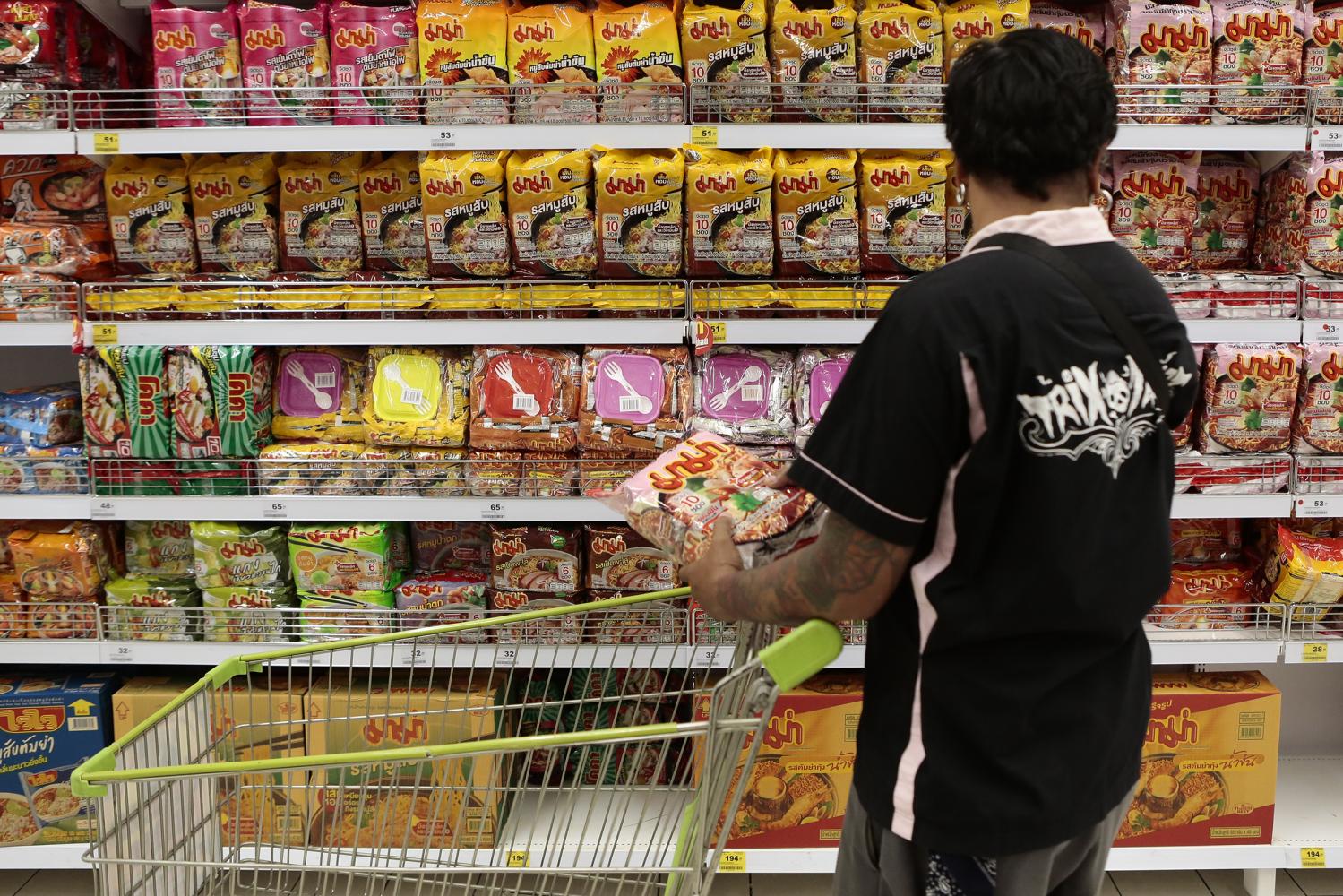
The Excise Department has unveiled an old plan to tax salty foods by setting a ceiling at 2,000 milligrammes per day of sodium as a benchmark to determine the levy rates, a senior official says.
Imposing a tax on foods containing high sodium levels follows a similar practice for sugary beverages, said Nattakorn Utensut, deputy spokesman for the Excise Department.
The potential benchmark is based on a health standard that advises people consume less than 2,000mg of sodium per day, he said.
The department would tax salty products such as snacks and instant foods, but not seasoning such as fish sauce, soy sauce and salt.
The department floated the idea last year but former Finance Minister Apisak Tantivorawong held the plan back, saying a tax on salty foods would require a lot of effort and contribute minimal tax income for the government.
The Excise Department estimates the second phase of the tax hike on sugar-sweetened beverages, effective from Oct 1, will contribute an additional 1.5 billion baht a year to state coffers.
The sugary drink tax generates 2 billion baht a year for the government, said Mr Nattakorn.
Thailand implemented the excise tax on sugary drinks on Sept 16, 2017, with the goal of lowering sugar consumption. The rates are scheduled to rise on a gradual basis over four phases: Sept 16, 2017 to Sept 30, 2019; Oct 1, 2019 to Sept 30, 2021; Oct 1, 2021 to Sept 30, 2023; and from Oct 1, 2023.
The Excise Department has classified sugar content in beverages into six levels based on a volume of 100 millilitres: below six grammes, 6g to below 8g, 8g to below 10g, 10g to below 14g, 14g to below 18g and 18g and higher.
From Oct 1, 2019 to Sept 30, 2021, the tax on beverages with sugar content of 10-14g will be raised to one baht from 50 satang per 100ml. For 14g to below 18g the tax will be increased to three baht from one baht, and for 18g onwards the levy will rise to five baht from one baht.
The tax exemption for drinks containing sugar content of below 6g will remain in place, and the levies on those with 6-8g and 8-10g will remain unchanged at 10 satang and 30 satang, respectively.
Mr Nattakorn believes the new excise tax rate will prompt sugary beverage manufacturers to reduce the sugar content of their products.
The number of sugary drink products that have reduced sugar has risen to 200-300 from 60-70 before the levy was introduced two years ago. The sugar content of some fizzy drinks has been reduced to below 10g per 100ml bottle to avoid the higher levy.
He predicted the department's tax revenue target of 584 billion baht for fiscal 2019 is within reach.
The target was previously reduced from 620 billion baht.
The department aims to garner 640 billion baht for fiscal 2020, starting from Oct 1, 2019.